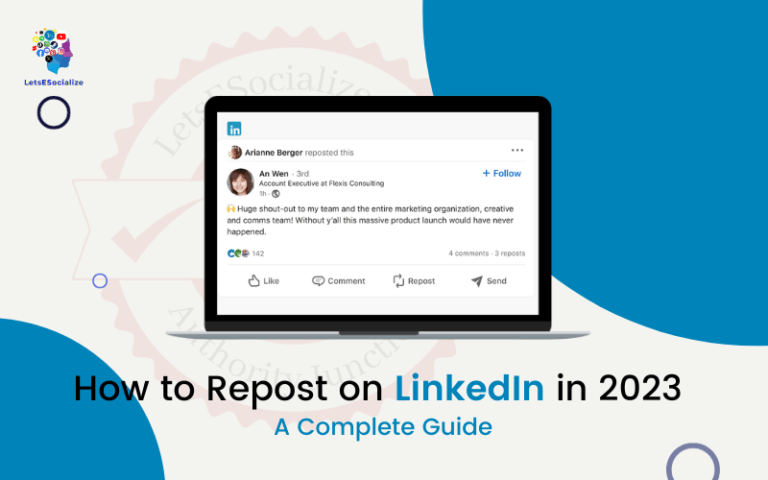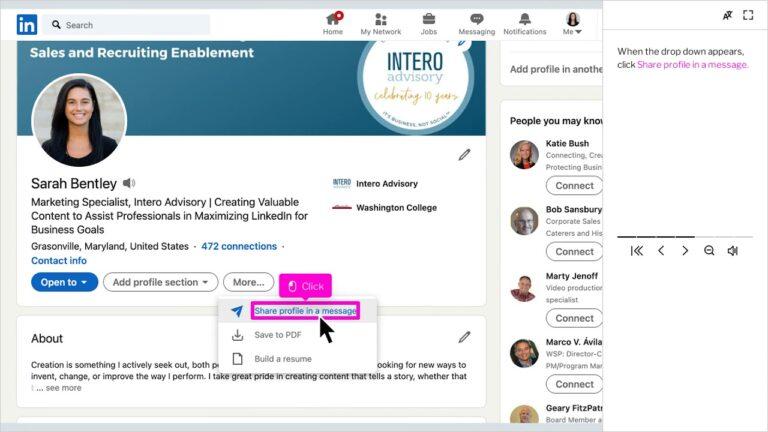LinkedIn has become an invaluable platform for researchers to build their professional brand, network, find job and funding opportunities, and share their work. With over 722 million users, LinkedIn is the world’s largest professional network and an important tool for researchers in all fields and career stages. Optimizing your LinkedIn presence as a researcher is crucial to take full advantage of the platform’s benefits. This comprehensive guide covers tips and best practices for researchers to optimize their LinkedIn profiles, grow their network, share content, and leverage LinkedIn to advance their careers.
Table of Contents
Optimizing your LinkedIn Profile

Your LinkedIn profile serves as your professional online presence and resume. It’s likely the first thing people will see when looking you up online. Optimizing it fully is critical. Here are key tips:
- Professional Photo – Have a quality professional headshot photo. It makes your profile stand out and look more credible.
- Headline – Summarize your research focus and credentials in your headline, e.g. “Cancer Researcher | Ph.D. | the University of Michigan”.
- Summary – Use your summary section to provide an overview of your research background, interests, and goals. Include key skills, experience, publications, and achievements.
- Experience – Detail your research experience, education, publications, conferences, volunteer work, and other relevant achievements.
- Skills – List key skills like statistical programs, lab techniques, programming languages, etc.
- Accomplishments – Showcase grants, awards, press mentions, patents, projects, and major accomplishments.
- Recommendations – Ask managers, colleagues, mentors, and collaborators for recommendations to build credibility.
- Links – Link to your website, published papers, etc. to provide evidence of your work.
- Keywords – Include keywords in your profile that people may search to find you.
Also Read – Google My Business User management
Growing Your Network

Expanding your network on LinkedIn allows you to connect with fellow researchers, collaborators, mentors, potential employers, and those who can help advance your career. Here are tips for growing your network:
- Connect with colleagues at your university or lab you know and trust.
- Follow key researchers in your field to keep up with their work.
- Join LinkedIn groups for researchers to connect within your discipline.
- Follow companies and organizations you may want to work for.
- Connect with former managers, mentors, and training program leaders.
- Attend LinkedIn events and conferences to network in person.
- Connect strategically – focus on those who can enhance your opportunities.
Sharing Content to Demonstrate Expertise

Publishing long-form posts and sharing content allows you to build your reputation as a thought leader. Here are great ways for researchers to share content on LinkedIn:
- Publish your papers or summaries to share your latest research.
- Share news about your recently awarded grants and achievements.
- Post insights and commentary about developments in your field.
- Share slides and recordings from conferences you presented at.
- Provide tips and advice for other researchers in your discipline.
- Share job openings, internships, or volunteer opportunities in your lab or department.
Leveraging LinkedIn to Advance Your Career

As a professional networking platform, LinkedIn offers many opportunities to advance your research career, including:
- Finding job and postdoc opportunities posted on LinkedIn.
- Uncovering potential research collaborators via your connections and groups.
- Connecting with funders, journal editors, and conference organizers in your network.
- Following companies and joining industry groups to explore private sector opportunities.
- Promoting your PhD program, lab, or department to attract talent.
- Building your brand as an expert can lead to speaking opportunities.
- Connecting with science writers and the press to promote your published research.
By optimizing your LinkedIn presence and actively engaging on the platform, researchers can build productive networks, share their expertise, and open doors to new career opportunities.
Related Questions and Topics to Cover:
- How can early career researchers with limited experience optimize their LinkedIn profiles?
- What are LinkedIn profile optimization tips for researchers looking for faculty or postdoc positions?
- What types of content and discussion groups should researchers in academia participate in on LinkedIn?
- How can PhD students leverage LinkedIn for networking and job opportunities?
- What are some key LinkedIn profile optimization tips for researchers in industry positions?
- How can LinkedIn be used to promote and share published research work?
- What are the pros and cons of connecting with other researchers in your same niche or field?
- How can LinkedIn be leveraged to find research collaborators and mentors?
- What tips do you have for managing a LinkedIn presence while maintaining a work-life balance?
- How can researchers measure the impact and results of their LinkedIn activity?
- What common LinkedIn profile mistakes should researchers avoid?
- How can researchers use LinkedIn to build connections with science journalists and promote media coverage?
- What types of visual content like infographics and charts play well on the LinkedIn platform?
Also Read – Mastering Troubleshooting on Google My Business: A Comprehensive Guide
Conclusion
Optimizing and actively engaging on LinkedIn as a researcher enables you to showcase your expertise, network, collaborate, and access career-advancing opportunities. By following the tips in this guide, researchers at any career stage can maximize their LinkedIn presence to further their professional goals and build their brand as a thought leader in their field. Consistently posting compelling content while growing your quality connections enables you to position yourself for success both within and outside of academia.







